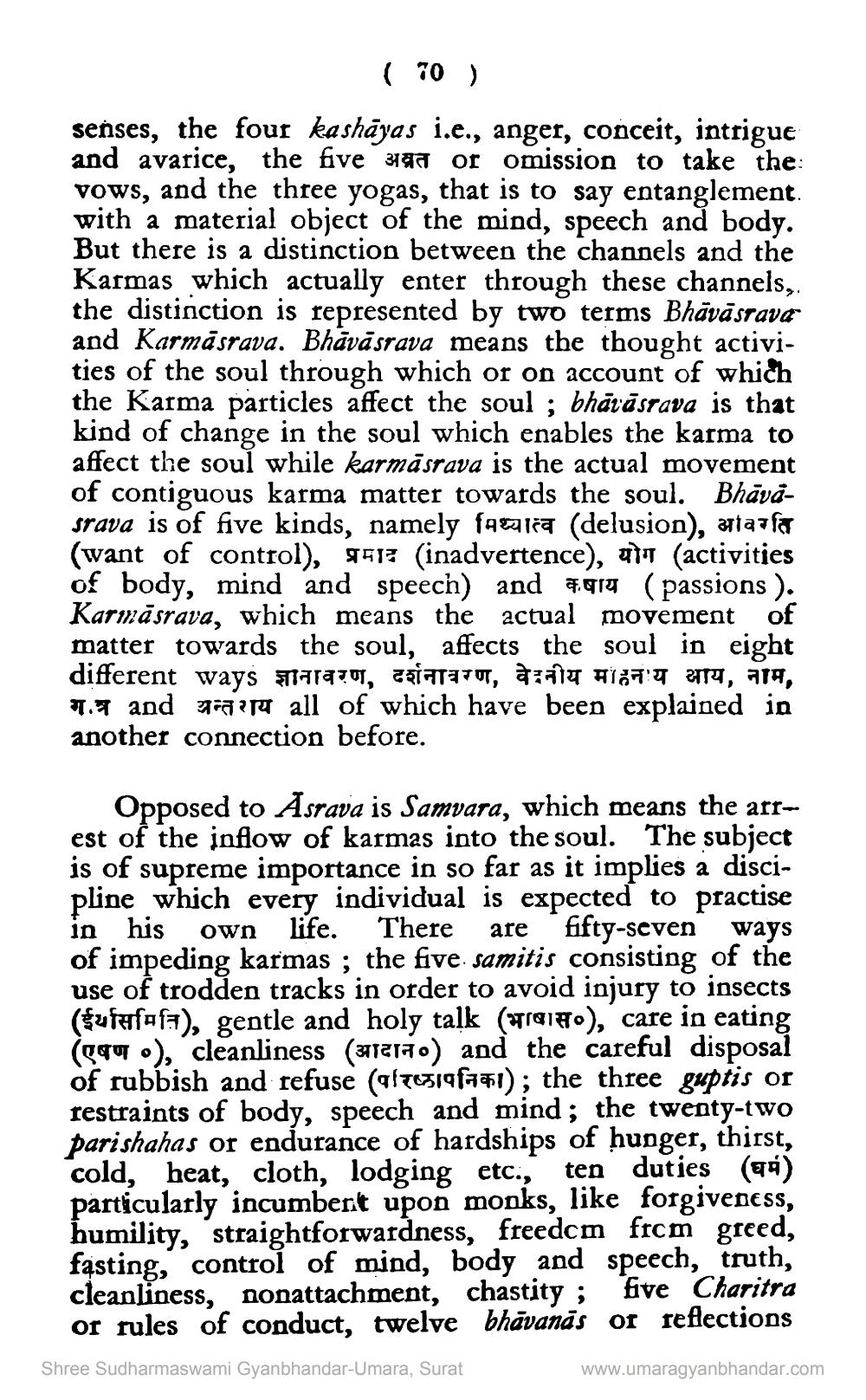________________
( 70
)
senses, the four ka shāyas i.e., anger, conceit, intrigue and avarice, the five 3199 or omission to take the: vows, and the three yogas, that is to say entanglement. with a material object of the mind, speech and body. But there is a distinction between the channels and the Karmas which actually enter through these channels, the distinction is represented by two terms Bhāvā stava and Karmäsrava. Bhāvā srava means the thought activities of the soul through which or on account of which the Karma particles affect the soul ; bhārāsrava is that kind of change in the soul which enables the karma to affect the soul while karmāsrava is the actual movement of contiguous karma matter towards the soul. Bhāvasrava is of five kinds, namely 19871ca (delusion), atarla (want of control), 9512 (inadvertence), on activities of body, mind and speech) and 2014 (passions ). Karmāsrava, which means the actual movement of matter towards the soul, affects the soul in eight different ways Targ, zitator, azatu AZA!219, 719, 7.7 and are all of which have been explained in another connection before.
Opposed to Asrava is Samvara, which means the arrest of the inflow of karmas into the soul. The subject is of supreme importance in so far as it implies a discipline which every individual is expected to practise in his own life. There are fifty-seven ways of impeding karmas ; the five. samitis consisting of the use of trodden tracks in order to avoid injury to insects (fufafafa), gentle and holy talk (Troipo), care in eating (gano), cleanliness (1370) and the careful disposal of rubbish and refuse (al76519f441; the three guptis or restraints of body, speech and mind; the twenty-two pari shahas or endurance of hardships of hunger, thirst, cold, heat, cloth, lodging etc., ten duties (as) particularly incumberilt upon monks, like forgiveness, humility, straightforwardness, freedom from greed, fasting, control of mind, body and speech, truth, cleanliness, nonattachment, chastity ; five Charitra or rules of conduct, twelve bhāvanās or reflections
Shree Sudharmaswami Gyanbhandar-Umara, Surat
www.umaragyanbhandar.com




